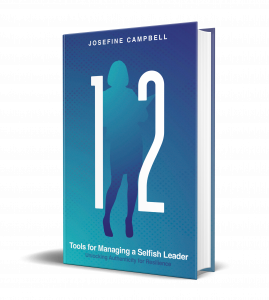
Share This Post
Organisational readiness takes that each leader is mentally ready, or mentally agile, as we can call it too. So this article is about developing your ability to lead with agility, and or being ready for whatever comes your ways. It is key in order for you to be able to lead for organisational readiness. In my book, Power Barometer – Manage Energy, not just Time and Money, you can find extended knowledge and inspiration on the topic.
Navigating uncertainty with coolness, keeping a calm mind, being fearless and dealing with any discomfort you experience – this is what it feels like to be agile. At the point of writing this article, Lars van Hauen was Chief Innovation Officer of E.On. Denmark, a European energy company with 43,000 employees. As an innovation leader and officer, I consider Lars to be more agile and innovative than 95% of other leaders I know. With tips from Lars, I will share what it means to be agile and how to develop your agility and leadership.
Advice from Lars, on how to be ready and agile when leading
When I’m giving speeches about agility in leadership, I often have used Lars as an example of an agile leader ready to catch opportunities for innovating the future. On several occasions, I have noticed how unbiased Lars is. When I asked Lars for advice on he keeps an open mind, he told me, “Go to a rock concert! Or make sure you frequently get a new experience, expose yourselves to new impulses. I truly believe in this”.
Lars is right! Exposure to new things and new people enhances your emotional agility. Emotional agility is the ability to not react immediately to emotions, but instead to just observe them. This means taking time to understand the possible causes of emotions and using intention to decide how to manage them. Emotional agility is key to having an open mind. Spending time in unfamiliar situations, with new people, and in new places, will help you become more tolerant and accepting of your own discomfort. This increases the confidence in your ability to navigate ambiguous situations, which is something that is essential for innovative leaders. Fusing emotional agility and leadership will turn you into a better listener, strengthen your interpersonal skills as well as develop your empathy. Essentially, these traits will create a more flexible mind.
Thoughts for growth and the science behind this advice
In the Harvard Business Review, psychologist Todd D. Kashdan writes about the mental benefits of vacationing somewhere new. In a study conducted with 485 adults in the United States, Kashdan explains how exposure to foreign travel links to a greater ability to direct attention and energy. This is important because it helps people function efficiently in diverse situations and enables the appropriate use of verbal and nonverbal emotional signals. Visiting more countries (breadth) or experiencing immersion into local culture (depth) enhances these effects. These positive benefits also remained after the study subjects returned home.
So, when Lars and I recommend going to a rock concert or trying something you have never done before, you too will obtain some of the benefits described in this study. This will in turn enhance your own agility and leadership development.
Decrease bias and increase empathy
There are even more benefits to going somewhere new. When you move to a new city or travel somewhere foreign, your bias decreases and empathy increases. In the study mentioned before, those who had travelled abroad showed a greater ability to delay their judgment. They could look beyond the surface qualities of age, sex, race, or ethnicity. As a result, they became more capable of recognising whether another person’s actions mirrored deep-seated personality qualities or if it was situational factors influencing their behaviour.
Researchers in China found similar results in a survey of 197 adults before and after travelling. The study reported that those who had travelled to multiple countries developed a greater tolerance and trust of strangers. This had a positive influence on their attitudes toward strangers as well as colleagues and friends back at home. Additionally, they became more appreciative of people with new knowledge, philosophies, and skills.
Go to a rock concert - to increase personal agility and readiness
In other words, try new things! It doesn’t need to involve traveling somewhere foreign or going far away. It can be a rock concert, but it can also be a travel, a novel or something else. If you don’t want to venture too far out of your comfort zone, there are many other ways to explore and experience the world. I encourage you to visit somewhere new or listen to opinions outside of your own closest circles. You could also taste a new type of food, read a new genre or challenge your body with some physical activity. Curiosity for new adventures and a willingness to listen to perspectives which differ from your own will improve your agility and leadership. Stepping away from the familiar can actually expand your view.
We coach and inspire people, organizations and teams in overcoming obstacles and elevating performance. Our approach begins with addressing each client’s distinct challenges. We uniquely focus on amplifying personal energy, fostering enhanced performance, and building resilience for navigating complex situations, such as those involving uncertainty, conflicts, change and growth, to meet the target with sucess.
If you would like to be updated with new articles and videos, sign up for our mailing list. Your mail is not shared with anyone and there are advantages to being on the list e.g., getting a mini course in your personal leadership.












